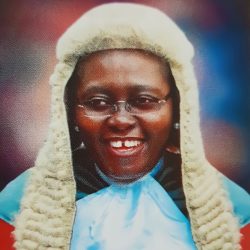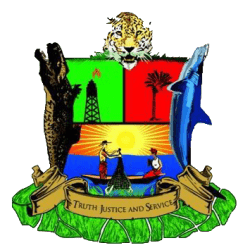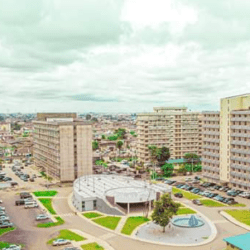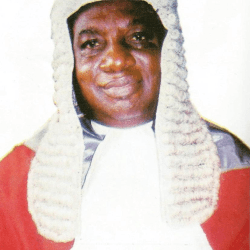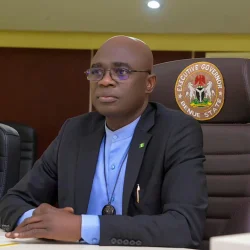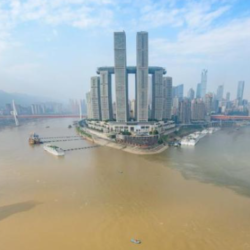RIVERS STATE HIGH COURT AND CUSTOMARY COURT OF APPEAL JUDGES, AS OF 2012
- Hon. Justice Iche N. Ndu, KSC, OFR.
Chief Judge, Rivers State. - Hon. Justice PeterN.C. Agumagu, KSM.
President, Customary Court Of Appeal, Rivers State. - Hon. Justice Daisy W. Okocha
High Court, PH - Hon. Justice Obie O. Daniel-Kalio
High Court, PH - Hon. Justice C.I. Uriri
High Court, PH - Hon. Justice I.A. Iyayi-Lamikanra
High Court, Bori - Hon. Justice B. E.Ugbari
High Court, PH - Hon. Justice Joy N. Akpughunum
High Court, Nchia - Hon. Justice S.O. Iragunima
High Court, PH - Hon. Justice S.C. Amadi
High Court, PH - Hon. Justice E. Teetito
High Court, PH - Hon. Justice B.G. Diepiri
High Court, PH - Hon. Justice E.N. Ogbuji
High Court, PH - Hon. Justice B. A. Georgewill
High Court, PH - Hon. Justice J.M. Kobani
High Court, Oyigbo - Hon. Justice W.A. Chechey
High Court, PH - Hon. Justice C.A. Okirie
High Court, PH - Hon. Justice T.S. Oji
High Court, PH - Hon. Justice A. W. Jumbo
High court, PH - Hon. Justice E. N. Thomson
High Court, Isiokpo - Hon. Justice Adolphus Enebeli
High Court , Degema - Hon. Justice R.I. Ahiakwo
High Court, PH - Hon. Justice S. H. Aprioku
High Court, PH - Hon. Justice M. O. Opara
High Court Okrika (Sitting in PH) - Hon. Justice George O. Omereji
High Court, Ahoada - Hon. Justice G.C. Aguma
High Court, Omoku - Hon. Justice L. L. Nyordee
High Court, Okehi - Hon. Justice M. W. Danagogo
High Court, Bori - Hon. Justice G. T. Irikefe- Ojo
Customary Court Of Appeal, Rivers State - Hon. Justice Christiana I. Gabriel-Nwankwo
Customary Court Of Appeal, Rivers State - Hon. Justice I. W. Obuzor
Customary Court Of Appeal, Rivers State - Mr. Sobere Biambo
High Court - Mr. Igwe Paul Chigozi Igwe
High Court - Mrs. Ibiwengi Roseline Minakiri
High Court - Mrs. Harriba Judith Dagogo-Jack
High Court - Mrs. Cresent Kiri Dappa-Addo
High Court - Mrs. Eberechi Suzzette Nyesom-Wike
High Court
Rivers
Rivers is a State in Southern Nigeria. It’s both an oil and commercial hub. The State comprises 23 Local Government Areas, four degree-awarding institutions, two refineries, a petro-chemical plant, fertilizer plant and a liquefied natural gas plant.

Port Harcourt. the capital, is one of Nigeria’s largest commercial centres and has the second busiest seaport in the country. This petroleum city has a busy international airport with regular local and international flights to all parts of the country and major cities of the world. It marks the eastern terminal of Nigeria’s railway system.
Rivers State, one of Nigeria’s 36 States was created from the then Eastern Region of Nigeria by Decree No. 19 of 1967. Before then, the territory was referred to as Oil Rivers Protectorate, a name derived from its central role in the oil trades of the last two centuries, first, the trade in palm oil and then, crude oil.

The state is the heart of the hydro-carbon industry, responsible for a huge chunk of the nation’s foreign exchange earnings. It is accountable for over 48% of crude oil produced on-shore in the country and over 90% of the liquefied natural gas that Nigeria is currently exporting to several countries of the world.

Rivers State has many indegineous ethnic groups namely: Abua, Andoni, Ekpeye, Engenni, Etche, lbani , lkwerre, Kalabari, Ndoni, Okrika, Ogoni etc. These ethnic groups have existed together for centuries, long before the creation of the State and are currently distributed in twenty three Local Government Areas.
Rivers State is the fifth most populous State in Nigeria with over 3 million residents.

Rivers State is also the sixth-largest geographic area in Nigeria.
The state has an indigenously diverse population with major riverine and upland divisions with beautiful cultural heritage.

The major ethnic groups are: Ogoni, Ijaw and Ikwerre.
The riverine, including most of the state’s towns and villages surrounded by water is moderately inhabited.
Engagement in arts often serves to strengthen social bonds in subtle but important ways, and to forge connections that may not have existed before.
Rivers State arts and culture are a vital tool in promoting a stronger social fabric and enhancing the social health of our state.
ECONOMY
It is the second largest economy in the country, next only to Lagos State. Port Harcourt, the State’s capital, is one of the largest cities in the country and contributes significantly to the nation’s financial, manufacturing, transport and telecommunications sectors, among others. In 2007, the State’s gross domestic product (GDP) was $21.07 billion and a per capita income of$3.965.

Rivers State generates about a third of Nigeria’s gross domestic product, gross domestic and national income and foreign exchange. Most of the multinational oil and gas companies in Nigeria and abroad are based either in Rivers State or have offices and branches in the state. These companies include, Shell Petroleum Development Company, Chevron Nigeria Limited, Total-Elf-Fina, Nigeria
Agip Oil Company, Saipem Nigeria Limited, Dawoo Nigeria Limited, Nigeria Liquified Natural Gas Limited. The State also has two petroleum refineries; two seaports, two airports, the Trans Amadi Industrial Estate and the Onne Oil and Gas Free Zone.
NATURAL RESOURCES
Rivers State is famous for its vast reserve of crude oil and natural gas. More than 40% of Nigeria’s output of crude oil and gas resources is produced in the state. Apart from crude oil, the State is also rich in silica sand, glass and clay and other solid minerals, most of which is untapped.
MANUFACTURING
Manufacturing activities are presently very limited in Rivers State. The State depends largely on goods and commodities imported from abroad or produced from other cities such as Aba, Onitsha and Lagos. Nevertheless the Trans Amadi Industrial Estate in Port Harcourt host some manufacturing companies. There are also some considerable manufacturing activities taking place in the Eleme/Onne industrial hub where Indorama Eleme Petrochemicals Limited, the Nigerian Petroleum Refinery Company and the Notore Chemical Industries, among others is located.
Port Harcourt
Port Harcourt is the capital of Rivers State, Nigeria and largest city in the state.
It is also the fourth most populous city in Nigeria after Lagos, Kano, and Ibadan.
Founded
1912
Port Harcourt was founded in 1912 by Frederick Lugard, governor of Nigeria.
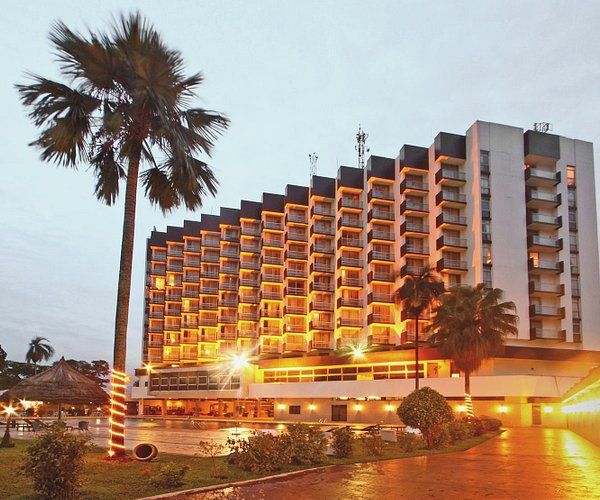
Purpose
The colonial administration of Nigeria created the port to export coal from the collieries of Enugu located 243 kilometres (151 mi) north of Port Harcourt, to which it was linked by a railway.
Name
The port was built in 1912, but not given a name until August 1913, when the then Governor of Nigeria, Sir Frederick Lugard, named it “Port Harcourt” in honor of Lewis Harcourt, then the Secretary of State for the Colonies.
Discovery of crude oil
After the discovery of crude oil in Nigeria at Oloibiri in 1956, Port Harcourt exported the first shipload in 1958.
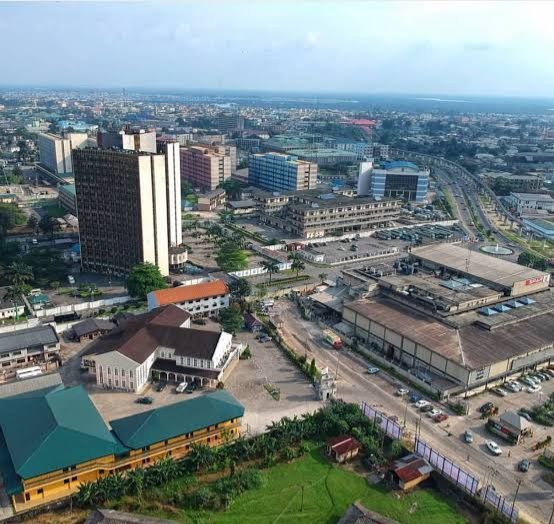
Through the benefits of the Nigerian petroleum industry, Port Harcourt was further developed, with aspects of modernization such as overpasses, city blocks, and taller and more substantial buildings..
Port Harcourt became the center of the Nigerian oil economy and it subsequently reaped benefits of its associations with the petroleum industry by undergoing modernization and urbanization.
Nigeria’s first oil refinery (1965) is at Alesa-Eleme, 12 miles (19 km) southeast of Port Harcourt.
Composition
The urban area (Port Harcourt metropolis) is made up of the local government area itself and parts of Obio-Akpor and Eleme.
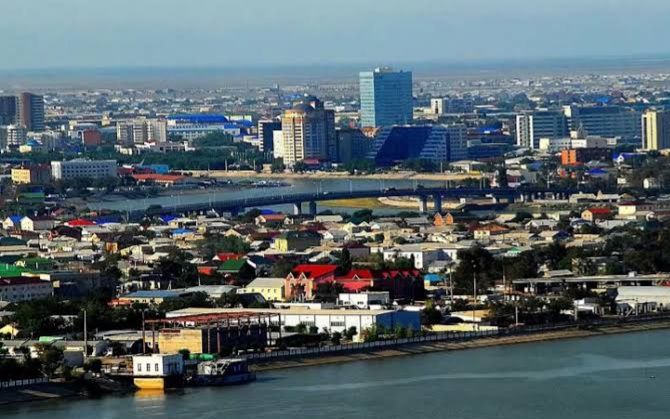
The Greater Port Harcourt region, spans eight local government areas that include Port Harcourt, Okrika, Obio-Akpor, Ikwerre, Oyigbo, Ogu–Bolo, Etche and Eleme.
Some of Port Harcourt’s more popular and well-known residential areas are known as Port Harcourt Township (or just “Town”), GRA (Government Reserved Area) phases 1–5, Elekahia, Rumuomasi, D-line, Elelenwo, Eliozu, Iboloji, Ogbunabali, Rumuola, Rumigbo, Mgbuoba, Diobu, Woji, Amadi Flats, Umuchitta, Rumuokoro and Borikiri.
The main industrial area is located in Trans Amadi, Abuloma.
Location
Port Harcourt lies along the Bonny River and is located in the Niger Delta.
Boundaries
It is bounded by the states of Anambra and Imo on the north, Abia and Akwa Ibom on the east, and Bayelsa and Delta on the west
Rivers state is located in southern Nigeria, comprising the Niger River delta on the Gulf of Guinea.
People
Port Harcourt was traditionally inhabited by Ijaw, Ikwerre, and Ogoni peoples, with a significant Igbo presence.
Historically Port Harcourt has been known as Obomuotu within which other smaller areas were called Diobu or Igweochaapeople
The area that became Port Harcourt in 1912 was before that of a farmland of people of Rebisi (Ikwerre).

The colonial government caused the people of Diobu to cede their land, and in 1912 the building of a port-town was started.
Other villages that were later absorbed into the city included Oroworukwo, Nkpogu, and Rumuomasi.
In the creeks to the south of the original port were the fishing camps and grounds of the Okrika-Ijaw group.
Tertiary institutions of learning
There are a number of public and private tertiary institutions in Port Harcourt.
These include Rivers State University, University of Port Harcourt, Ken Saro Wiwa Polytechnic, Captain Elechi Amadi Polytechnic, Ignatius Ajuru University, Rivers State College of Health Science and Technology, Madonna University, PAMO University of Medical Sciences, New Open University of Nigeria.
Airports
Port Harcourt’s primary airport is Port Harcourt International Airport, located on the outskirts of the city; the NAF base is the location of the only other airport and is used by commercial airlines for domestic flights.
Growth
Besides seaport and crude oil, Port Harcourt’s growth is further due to its position as the commercial center and foremost industrial city of the former Eastern Region; its position in the Niger Delta; and its importance as the center of social and economic life in Rivers State.

